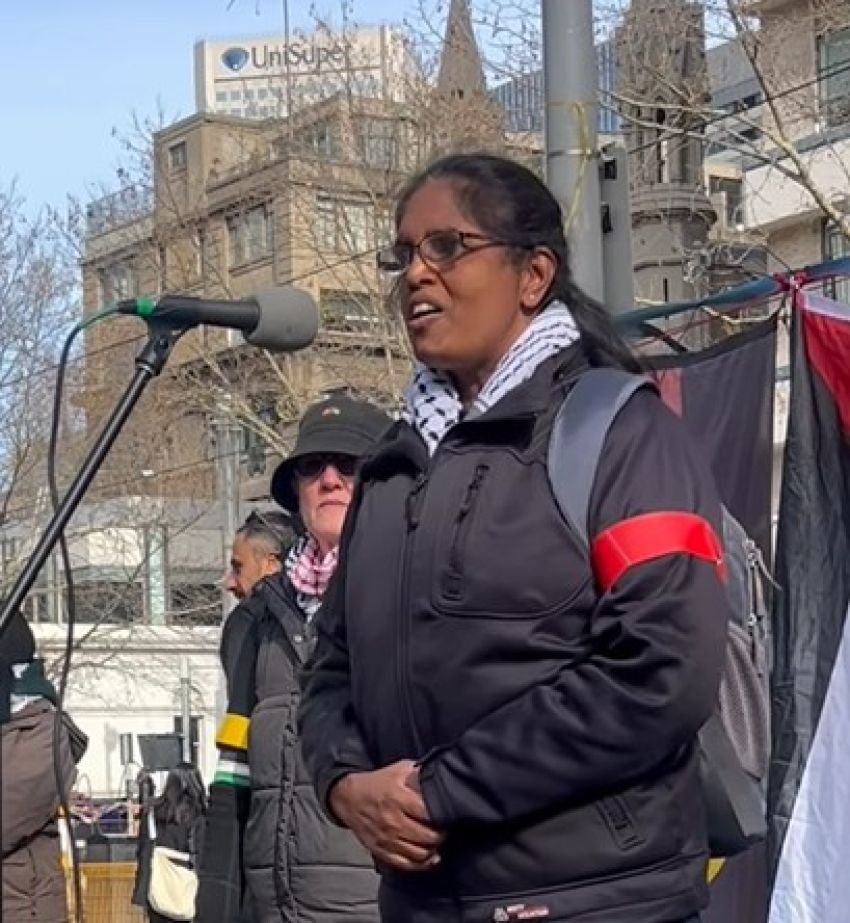
Menaha Kandasamy, general secretary of the Ceylon Workers Red Flag Union, recently visited Australia and spoke about plantation workers’ struggles. The union represents workers in Sri Lanka’s tea and rubber plantations.
She told a Refugee Action Collective meeting on July 21 that plantation workers have undergone “200 years of exploitation”. They work more than 10 hours a day in unsafe conditions, with no water to drink. Most live in overcrowded, substandard housing, known as “line rooms”, and are paid $6.75 a day. Their wages can be cut if the amount of tea picked is below the “norm”.
Most tea plantation workers are women, and the majority are Tamil-speaking descendants of workers brought from south India during the British colonial period. However, the union works with people from all communities.
Kandasamy said the plantation workers are kept isolated from the rest of Sri Lanka, describing it as a “captive labour system”. She said they are “not considered human”.
While oppressive, workers do have some rights; they have permanent employment, a pension scheme and maternity leave. Injury compensation is inadequate, but better than nothing, Kandasamy said. They also have a union to represent them.
The tea companies are now pushing for casualisation, which would eradicate these limited rights.
The union won a court case arguing that the casualisation plan is illegal. Employers are now appealling to a higher court.
The union has asked the government to take action to block the casualisation plan.
Kandasamy said that “the labour minister seems interested” and, while nothing has been done so far, it is “too early to say” whether the government will take action.
Sri Lanka’s National People’s Power government was elected in March last year. Kandasamy said it has been good on combating corruption, but is yet to take action to protect workers’ rights.